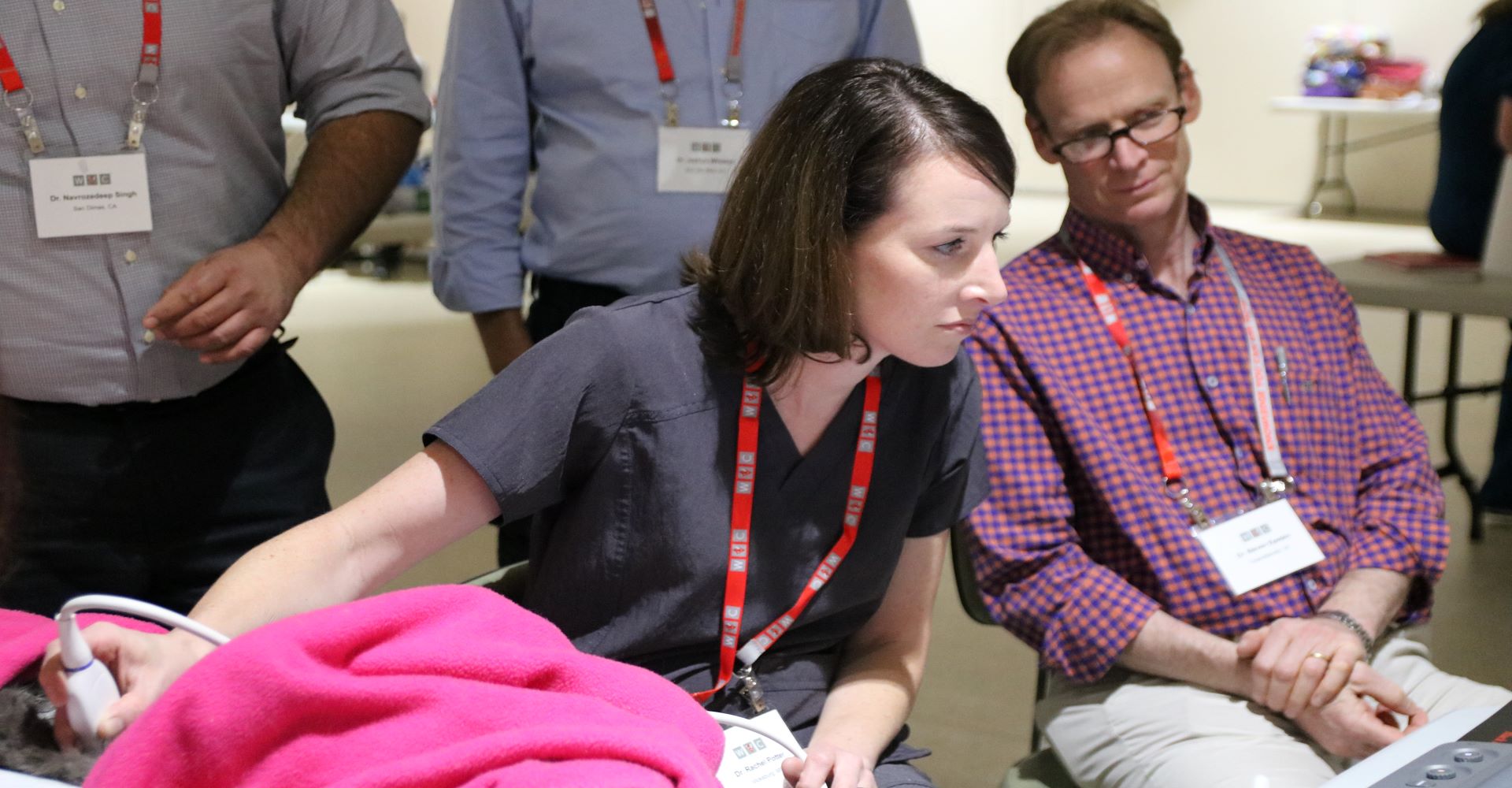The Window into the Body: Ophthalmology in General Practice
Improving eye care and updating equipment in your veterinary practice can mean earlier disease diagnosis and better patient care—right before your...

You love your job, but it's easy to feel like you're not progressing in your career. Rachel Poulin gives us tips from her journey of self-empowerment and career building.
Most of us in the veterinary profession (if not all of us) chose to pursue our career path because we love animals and want to care for them. Though we get to do what we love every day, it doesn’t mean that we don’t require personal and career growth or progress.
Unfortunately, many veterinary technicians are unsure of how to go about creating that growth for themselves. Some of them feel like they’ve plateaued in their careers.
Rachel Poulin is a successful licensed veterinary technician with a specialty in internal medicine and a passion for personal empowerment. She chats with Dr. Natalie Marks in a Quick Cup of Knowledge about what people can do to empower themselves and advance their careers.
#1: Reach Out to External Sources
Poulin says the most important thing she did to set herself up to career growth was to reach out to people who had something she wanted. Poulin tells Dr. Marks that she would talk to conference speakers she enjoyed listening to and would ask them, “How did you get here? What did you do?” She also asked them, “What can I do? Because I want what you have.”
Putting yourself out there is intimidating at first, but know that the community wants to help raise the next generation of veterinary professionals. Most people will be approachable and appreciate your reaching out.
Her main point is that there are so many resources outside of your practice. Whether it’s at conferences, in magazines, or part of national organizations, you may have to seek out that information to accomplish your goals.
#2: Find Your Niche
For technician students who want to specialize but are unsure of how to go about it, Rachel Poulin has one question: What is your passion?
Before you specialize, make sure that it’s what makes you smile, floats your boat, and soothes your soul. Otherwise, you’ll be stuck neck-deep in studying something you don’t love that much.
Find your niche. There are so many topics in veterinary medicine! Find the skill that makes you happy and immerse yourself in learning about it.
For Poulin and the industry leaders she admires, it required a lot of time and effort. If you want to specialize because you think you’ll get paid $2 more an hour, it’s a good indication you shouldn’t do it. You’d be depending on something or someone else to give you the prize or make it worth your while. Do it for you, not for the pay raise.
“If you’re going to put the work in,” Poulin says, “make sure you’re doing it for you. Make sure it’s something you want in your heart.”
#3: Take the Initiative
Some veterinary technicians will specialize, but some won’t. There are multitudes of ways to advance your career. But, they all involve being more assertive than you might be used to.
People in the veterinary community tend to be introverted, but a lot of career advancement comes through interacting with others to solve problems. Talking to your practice manager or medical director about an area you can help the practice improve in is an amazing start.
The key, according to Poulin, is to take the initiative in your own career journey. Don’t wait for permission to do more. The new knowledge you receive combined with initiative will bring personal confidence and empowerment, which will make you happy and make the veterinary world a better place.
Stay in the Know!
If you’re a nerd about anesthesia (we know you’re out there), then the Veterinary Anesthesia Nerds Symposium will be your cup of tea.
Click the link to subscribe to our YouTube channel or check out our Resource Library full of great podcasts, videos, and digital downloads!
Disclaimer
Content may contain advertising and sponsorships. Advertisers and sponsors are responsible for ensuring that material submitted for inclusion is accurate and complies with applicable laws. We are not responsible for the illegality or any error, inaccuracy or problem in the advertiser’s or sponsor’s materials.
Advertising and sponsorship material and/or opinions are not are not a reflection on Viticus Group.

Improving eye care and updating equipment in your veterinary practice can mean earlier disease diagnosis and better patient care—right before your...

Cannabinoid use is such a hot topic, it's sometimes hard to sift out the myths and hearsay from the facts. Dr. Dawn Boothe explains what the...

How important is continuing education to a veterinary practice, anyway? What resources are out there to help you? Just ask Mary Berg, whose words of...